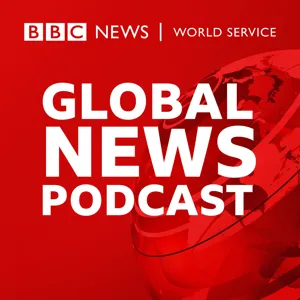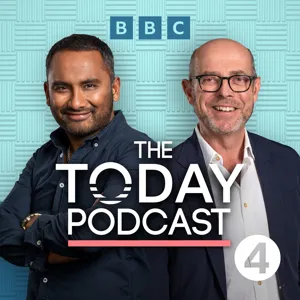Podcast Summary
Safety and security in conflict zones: In conflict zones, safety and security can be elusive, and individuals may question their value, even with the means to ensure it.
Safety and security are fundamental human needs, yet they can be elusive, especially for people living in conflict zones like Gaza. Mohammed Ghalyeny, an atmospheric scientist from Manchester, England, was contemplating moving back to Gaza after being away for 20 years. During a visit to see his father, he faced unexpected challenges and realized that nowhere felt truly safe. Despite having a British passport, which could have provided him with more options, Mohammed found himself questioning the value of safety and considering just living life without it. The situation became more urgent when war broke out, and Mohammed and his family had to evacuate their home in the north of Gaza. They managed to escape in a small car, but Mohammed, needing some space, asked the taxi to leave him behind near the Wadi Hazza river, which was considered a safe zone. His decision was met with resistance, but Mohammed's need for personal space in the midst of chaos and uncertainty highlights the complex nature of safety and security, especially in unstable environments.
Witnessing the Struggles of Civilians in Gaza: The situation in Gaza is dire, with civilians facing danger and hardships as they leave their homes due to conflict. Elderly and vulnerable individuals are struggling to make it to safety, and the international community is being criticized for enabling war crimes and ethnic cleansing.
The situation in Gaza is dire, with civilians being forced to endure difficult journeys and face potential danger as they leave their homes due to conflict. The speaker shares a personal experience of witnessing some of this firsthand and expresses deep concern for the elderly and vulnerable individuals who are struggling to make their way to safety. The situation is described as reminiscent of historical events and a lot of suffering is being inflicted, with the international community being called out for enabling these war crimes and ethnic cleansing. The speaker emphasizes the importance of considering safety on a minute-by-minute basis and shares a personal story of a close encounter with danger while visiting family. Overall, the situation in Gaza is a tragic and complex geopolitical issue that requires urgent attention and action.
Living in Fear of Violence: A Personal Account: The fear of violence can lead to profound impacts on individuals and communities, with complex perspectives on conflict and a desire for civilian safety
The uncertainty and fear of violence can have profound impacts on individuals and communities. The speaker shares her experience of an explosion and the subsequent panic and relief when they discovered everyone was safe. She also discusses the larger conflict between Hamas and Israel, expressing her perspective that the situation is complex and that civilian lives should be spared. In Gaza, she learned that people's views on Hamas are nuanced, with some seeing it as a means of defending against occupation, while others express frustration and hardship.
Living in Gaza: A Voice for the Community: Mohammed Ghalyini, despite the challenges, chooses to stay and be a voice for the Gaza community, deeply connected to his home and believing he can make a difference.
The situation in Gaza, after 16 years of rule by Hamas, has left many feeling afraid, worried, and angry. There is a humanitarian crisis that could have been avoided, leading to a sense of mismanagement. Some people feel their lives were not worth living due to the underdeveloped economy and restrictions on travel and trade. However, for individuals like Mohammed Ghalyini, staying and being a voice for the community is important, despite the challenges. He feels a deep connection to Gaza as his home and believes he can make a difference by supporting his community and sharing their stories. The complexities of the situation are highlighted by the fact that some may feel it's logical for Mohammed to leave and tell his stories from outside, but he feels it's not right for him to do so. This sense of home and the potential loss of the ability to return is a common theme for Palestinians, given historical precedents. Ultimately, the situation in Gaza is complex, with valid concerns on both sides, and the human stories and experiences are crucial to understanding the ongoing challenges.
The Rafah crossing, the only window to the world for Gazans, is often closed due to security situations and political tensions.: The Rafah crossing, a vital source of travel and access to the outside world for Gazans, is frequently closed due to security concerns and political tensions, limiting their mobility and opportunities.
The Rafah crossing in the Sinai Peninsula is the only land access into the Gaza Strip that is not controlled by the Israeli military and plays a crucial role in providing Gazans with the only window to the world outside of the strict blockade policies imposed by Israel. However, the crossing is not always open due to security situations, wars, and political tensions between Egypt and Hamas authorities. The closure of the Rafah terminal by Egypt, along with Israel's siege on Gaza, significantly limits the Gazans' ability to travel and access the outside world.
Gaza's Siege: Limited Access to Basic Needs and Threats to Humanitarian Convoys: The siege in Gaza restricts access to essentials like electricity, food, water, and gas. Only a small percentage of Palestinian needs have been met since the conflict began. Palestinians face restrictions on leaving Gaza, and diplomatic negotiations may lead to forced displacement, causing uncertainty and potential ethnic cleansing.
The situation in Gaza is dire, with a complete siege in place that restricts access to electricity, food, water, and gas. The only potential way to break this siege is through the Rafah terminal, but Israel has threatened to bomb any humanitarian convoys that attempt to enter unilaterally. As a result, only a small percentage of the actual needs of the 2.3 million people in Gaza have been met since the beginning of the conflict. Palestinians without foreign nationalities cannot leave the Gaza Strip freely, and even those with foreign citizenship face restrictions. Diplomatic negotiations may allow for some Palestinians to leave, but the idea of forced displacement is being met with strong resistance from Egypt and could be considered a crime of ethnic cleansing. For those who do make it across the border into Egypt, it is unclear if they will be able to immediately return to their countries of citizenship. The situation is complex, with real-world implications for both the Palestinian people and the economies of neighboring countries.
Egypt's New Policy on Palestinian Dual Citizens: Egypt's new policy restricts Palestinian dual citizens to a 72-hour stay, separating families and sending a message of unwelcome.
The Egyptian authorities are currently imposing strict entry and exit regulations on Palestinian dual citizens entering Egypt through the Rafah terminal. These individuals are being given only 72 hours to leave Egypt, despite the fact that they are usually allowed to stay on tourist visas or under exceptional allowances for Palestinian nationals. This new policy is likely a response to the pressure Egypt is facing to accept Palestinian refugees, as Egypt tries to discourage the influx of refugees and send a message to Palestinians that they are not welcome. This has left many families separated, with some members being allowed to leave while others are being turned away. For example, Mohammed Ghalyani's family was recently separated when his mother and sister were allowed to leave while his father, brothers, and stepmother were still waiting to be approved. Mohammed himself remains in Gaza. This situation highlights the complex and often uncertain nature of border crossings and the impact they can have on individuals and families.






